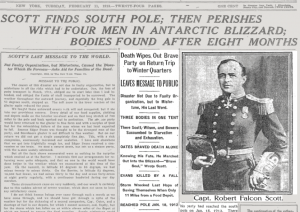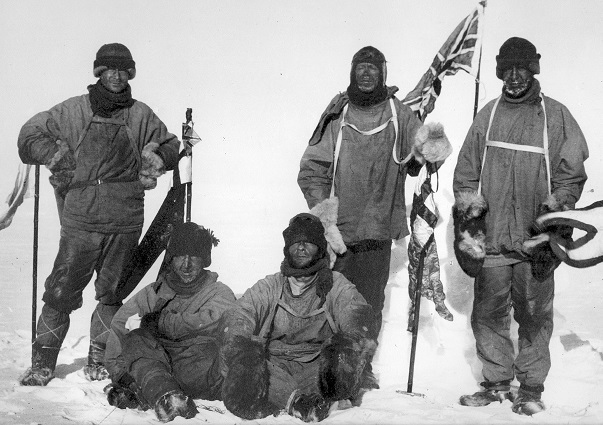Robert Falcon Scott and his party of four others likely starved to death on their return from the South Pole in 1912 because they underestimated their caloric needs and did not have enough rations to sustain their exertions, according to Lewis Halsey and Mike Stroud.

“One hundred years on, our understanding of such stresses caused by Antarctic extremes and how the body reacts to severe exercise, malnutrition, hypothermia, high altitude, and sleep deprivation has greatly advanced. On the centenary of Scott’s expedition to the bottom of the Earth, there is still controversy surrounding whether the deaths of those five men could have, or should have, been avoided.
This paper reviews present-day knowledge related to the physiology of sustained man-hauling in Antarctica and contrasts this with the comparative ignorance about these issues around the turn of the 20th century.
It closes by considering whether, with modern understanding about the effects of such a scenario on the human condition, Scott could have prepared and managed his team differently and so survived the epic 1,600-mile journey. The conclusion is that by carrying rations with a different composition of macromolecules, enabling greater calorific intake at similar overall weight, Scott might have secured the lives of some of the party, and it is also possible that enhanced levels of vitamin C in his rations, albeit difficult to achieve in 1911, could have significantly improved their survival chances.”
In the photo, Scott is in the middle standing.
from: Halsey LG and Stroud MA: 100 years since Scott reached the pole: a century of learning about the physiological demands of Antarctica. Physiol Rev. 2012 Apr;92(2):521-36. (full text)
